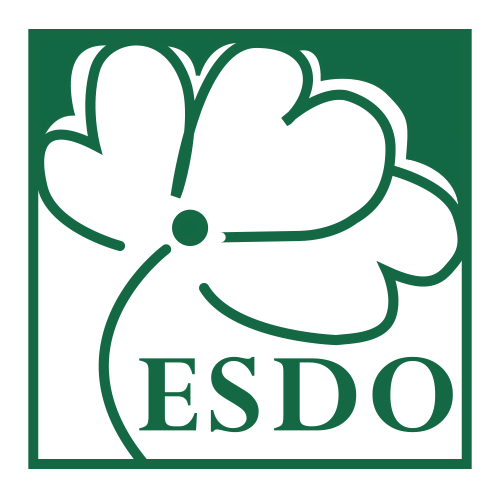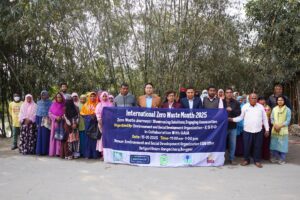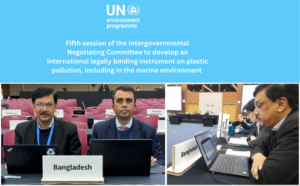Owing to the lack of regulation, the harmful use of Mercury reached alarming level in Bangladesh. As a result health risks and environment pollution has increased manifolds. In the year 2014 legally and illegally 58 metric tons of harmful mercury has been imported in Bangladesh. This information has been revealed in the workshop called ‘‘Reduction of Demand of Mercury, in Mercury containing products in Bangladesh” organized by Environment and Social Development Organization- ESDO, in association with United Nation Environment Program (UNEP).The workshop took place at 17th December, 2015.
While conducting a primary study on Mercury added products in 2015 ESDO has seen 1.09- 6.22 metric ton mercury vapor is emitted annually from dental amalgam. During the preparation of dental amalgam, if amalgam capsule is leaked, while working with amalgam as well as from different sources Mercury vapor can be released. According to a primary survey result it has seen that a person breathes in 3 to 17 micro grams of mercury vapor during dental amalgam filling. Annually this figure ranges from 1,095 grams to 6,205 grams. From jewelry industry approximately 0.85 metric ton of mercury is emitted. According to another study “Mercury Sources: Products & Hotspot on Bangladesh,” by ESDO, published in 2012, 3361 to 4,653 ppm of mercury has been used in various beauty products.
According to the ESDO study findings, a standard thermometer contains0.5 g- 2.0ganda standard sphygmomanometer contains 80g -160g of mercury. Also through the breaking of thermometer and sphygmomanometer annually0.69 tons and 3.3 tons of mercury is released into the atmosphere respectively.
Dr. Desiree Raquel Montecillo Narvaez, Program Officer of Geneva based UNEP and Special Guest of the workshop welcoming ESDO’s initiatives on reducing mercury emission from different sector in Bangladesh said, “This survey report is an important document. It will not only help the government to ratify Minamata Convention but also will be a milestone in awareness building about Mercury and government policymaking.” She also thinks this initiative of ESDO will be exemplary for the government and non-governmental organizations of other countries of the world.
Additional Secretary, Ministry of Environment and Forest (MoEF), Chief Guest of the workshop Mr. Md. Nurul Karim said “Bangladesh government is extremely sincere about stopping the use of mercury in dental amalgam, beauty products, thermometer, kids’ toys and food.” He added “Since Bangladesh has signed in Minamata Convention we have to ratify Minamata Convention hastily. Necessary steps have been taken from Ministry of Environment and Forest (MoEF)regarding this affair.”
Chairperson of ESDO and former Secretary of the People’s Republic of Bangladesh Syed Marghub Murshed chaired the workshop. He called for everyone’s help in keeping our environment mercury free.
Dr. Istiaq Uddin Ahmad, Country Representative of IUCN, said “In order to ban mercury and mercury added products throughout the country within 2020 we have to work collectively.”
Professor Abu Jafar Mahmud, Special Guest, also the former Chairperson, Department of Chemistry at Dhaka University said, “Mercury used in different products is a poisonous metal which through various ways enter our body. Mercury harms human brain and deteriorates our hearing, vision and immunity. Pregnant women and children are more prone to mercury poisoning.”
Brig. Gen. Dr. Golum Mohiuddin Chowdhury, Advisor Specialist, Army Medical & Dental Core, Dhaka CMH, expressed his concern about the extensive use of mercury. He urged the government to reduce the use of mercury and to ratify Minamata Convention.
UNEP mercury specialist and Secretary General of ESDO Dr. Shahriar Hossain said, “Bangladesh signed the Minamata Convention in 2013, according to the convention, as a signatory country mercury use in different products has to be banned throughout the country within 2020. According to ESDO’s research report, in addition to energy sector, health sector, mercury is used in everyday consumer products like CFL blub, dental amalgam, cement, different beauty products, jewelry, sea fish even in chemical fertilizers in Bangladesh”. He has let us know that ESDO has conducted extensive awareness program to stop the use of mercury. In order to stop the use of mercury he demanded to government that Minamata Convention is ratified rapidly.
It has been said in a report by ESDO: in Bangladesh there is no appropriate management system of mercury extraction from the environment and there is no specific guideline on the safe use of mercury added products, elements and other chemical compounds. This is why replacing mercury added products from health sector are a challenge. Existing strategies of identifying mercury polluted areas and measuring the harmful consequence of mercury on human body and environment are very limited. The mass communication media lacks awareness regarding this affair and generally people knows very little about mercury contamination. This is why it is imperative that the consumers of mercury added products, policy makers and regulators know about this issue.
At the same time the workshop offered some recommendations to reduce the use and emission of mercury in Bangladesh:
- Training and promotion of the alternatives of mercury added products have to be done.
- Regulatory and structural programs should be taken by the government.
- Recommendation of planning and practice has also been provided to reduce the use of Mercury and Mercury added products.


